Interview by Michiel Klønhammer
Webinar el 25 de septiembre: El aprendizaje combinado que se merecen!
El 25 de septiembre lo invitamos a nuestro Webinar gratuito de 45 minutos: brinde a sus clientes y alumnos el aprendizaje combinado que se merecen!
Will Thalheimer – a learning and development research-to-practice translator, writer, trainer, evaluator, and thinker – has just published an insightful new book, "The CEO’s Guide to Training, eLearning & Work". I was fortunate to participate in an interactive reading club led by Will himself and got to know the man behind the book. After this learning experience I had the privilege of interviewing him.
Interview by Michiel Klønhammer
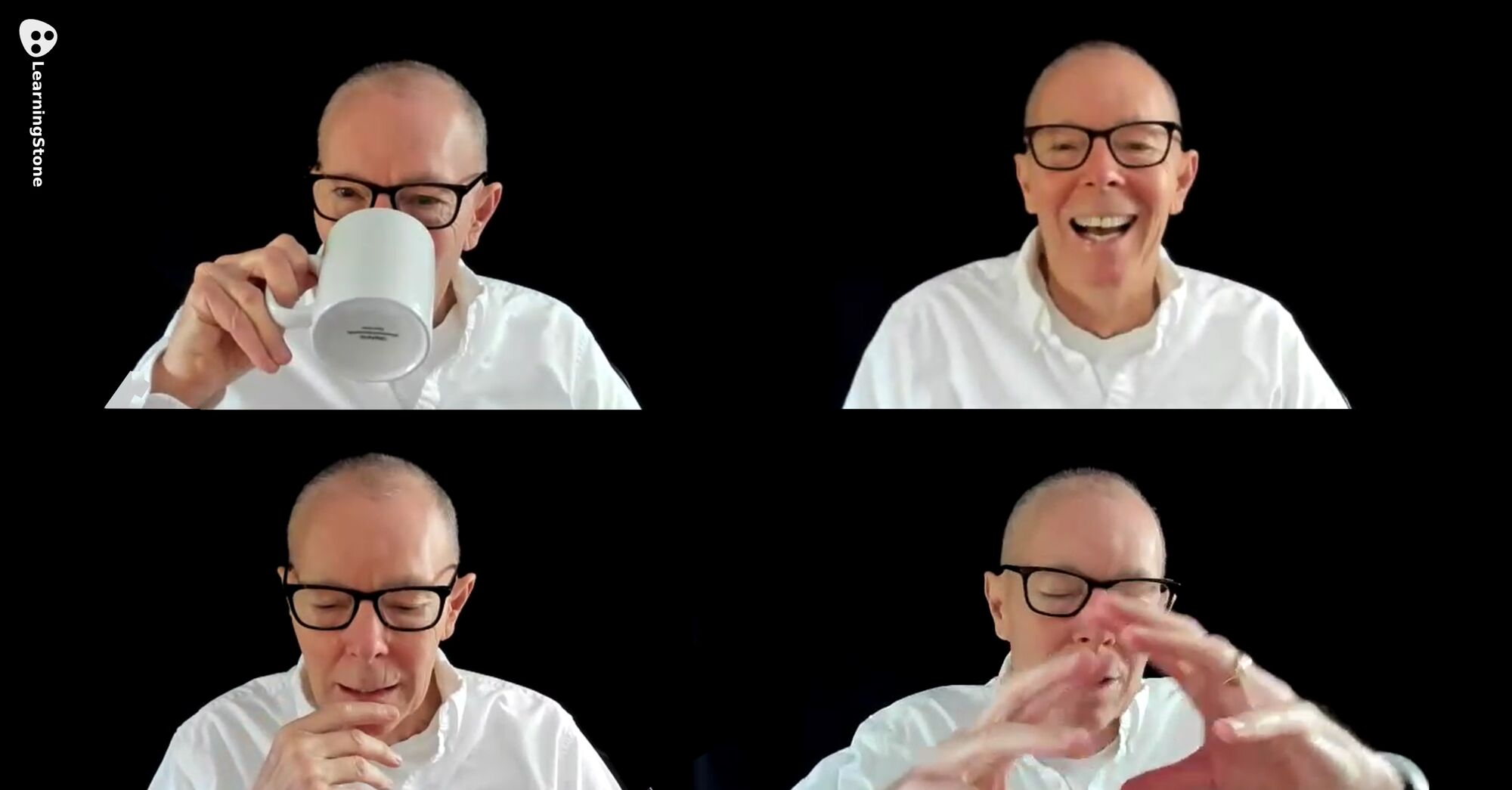
Will Thalheimer

Talking to Will is special. His boyish enthusiasm for learning and development is contagious and it’s hard to have a short conversation with him. His playfulness resulted in one of the funniest marketing gimmicks of the year. During the kick starter campaign for his new book, he introduces his mother and asks her if she thinks he’s to be trusted (yes of course). It begs the question: what was young Will like as a school boy?
On His Early Days: “I Hated School”
“Growing up in West Chester Pennsylvania, I actually hated school much of the time. I wasn’t very good at it and found it boring. I kept asking myself, ‘Why do I have to learn this crap?’” Will recalls. "I ended up taking what we now call a gap year, but in reality, I sort of dropped out and it became a couple of gap years. I didn’t go right to college like my parents had hoped, and they even considered sending me to military school."
His journey after high school wasn’t smooth. “I tried selling vacuum cleaners, and I wasn’t good at that either. I applied at a fast-food restaurant as a dishwasher and – thanks to the fact that I had a high school degree - got promoted to a short-order cook but it was a tough life.” Will decided to pursue higher education, studying psychology, though job opportunities in that field were limited. “I ended up working at a health insurance company in a room the size of two football fields. It was terrible.”
But then, his discovery of instructional design changed everything. “I moved on to get a master’s in business, but I wasn’t passionate about it until I stumbled upon courses on instructional design. Finally I’d found my calling.”
I felt this need to do something meaningful, to give back in some way
Will’s passion for learning wasn’t just about finding a career path; it was about making a difference. “I felt this need to do something meaningful – to give back in some way. Helping people learn felt like the thing to do.”
In the 1980s, Will started working with a company that was pioneering business simulations and then continued building his career by getting a PhD from Columbia University. By the end of the nineties, his focus shifted toward translating learning and development research to L&D practice. "I thought I could just write articles and books and have an easy life,” he says, laughing.
When asked about balancing his roles as a consultant and research-to-practice translator, Will chuckles. "Someone once told me that if you’re a consultant, you spend three days a week on paid jobs, one day on marketing, one day on business administration, and another three days on research." Without waiting for me to do the math, he explains his process: “I’ve always wanted to find the learning factors with large effect sizes, those that really improve learning. What really has an impact? I wrote about this and used my own effect-size calculator because in those days effect sizes weren’t published in journal articles.
Every time I started, I was euphoric about the subject
To examine one learning factor, I would read hundreds of studies, literature reviews, and meta studies. Every time I started, I was euphoric about the subject… let’s say it’s the effects of spacing in learning or transfer and then I would find out how much research there really is and have a period of anxiety before I would start understanding it all and seeing patterns… well, it’s a lot of work but I love it.”
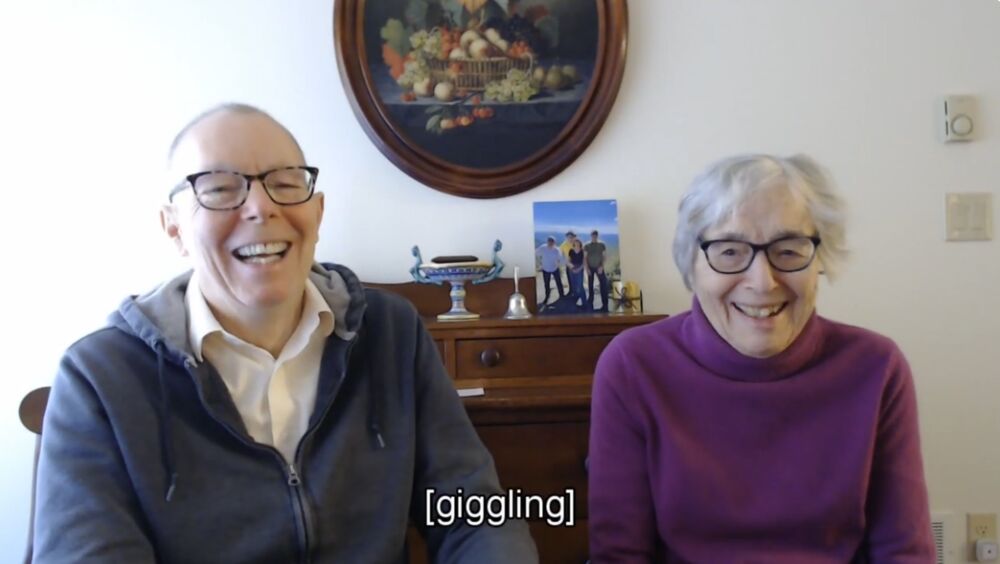
Will Thalheimer and his mother during the Kickstarter campain for "The CEO’s Guide to Training, eLearning & Work"

The New Book: The CEO’s Guide to Training, eLearning & Work
Five years in the making, Will’s new book addresses a key issue in the L&D field: the gap between what is known about learning and what is actually done in organizations. “I realized that we, as learning professionals, aren’t always empowered to make the difference we could, and we often have blind spots ourselves.” Will explains.
Although the book is titled The CEO’s Guide to Training, eLearning & Work, it’s designed to be just as useful for L&D professionals. "The book covers lots of topics—from learning science to evaluation to how a CEO should judge the work of a chief learning officer—and it’s broken down into 50 short chapters, making it easy to read. For those who want to dig into the research, I’ve added quite a few notes in the back so you can get into the details if you want to.”
Will stops smiling for a moment when he summarizes the main point of the book: “If L&D is done right, it can provide an enormous competitive advantage for companies and my aim is to show how L&D can do that. The difference between good and bad learning can be 100% or more, which can have a huge impact. Really!"
LTEM: Launch party coming!
One important chapter in the book is about Will’s evaluation model LTEM (Learning-Transfer Evaluation Model), a model he first introduced in 2018. "I wanted a better approach to learning evaluation, one that offered more of what I call learning wisdom than the traditional Kirkpatrick model,” Will explains. The new version of LTEM which is being presented at the online launch party on October 31st (see signup below) includes improvements to the knowledge tier and provides more practical advice for users. “I’m really excited about it all and the amount of people signing up is amazing,” he adds.
When asked about the purpose of evaluation, Will emphasizes that it shouldn't solely focus on shareholder value or business results. "These days, even business owners are thinking beyond just profit, and that’s a good thing. Good learning practices benefit not only the organization but also the learners themselves and sometimes society as a whole."
He warns against over-relying on impact evaluations. "They’re expensive, it’s often difficult to measure the impact of a single course on an entire organization, and by focusing only on impact we miss measuring the learning factors that we can leverage for improvement. The focus should be on ensuring that learning itself is effective."
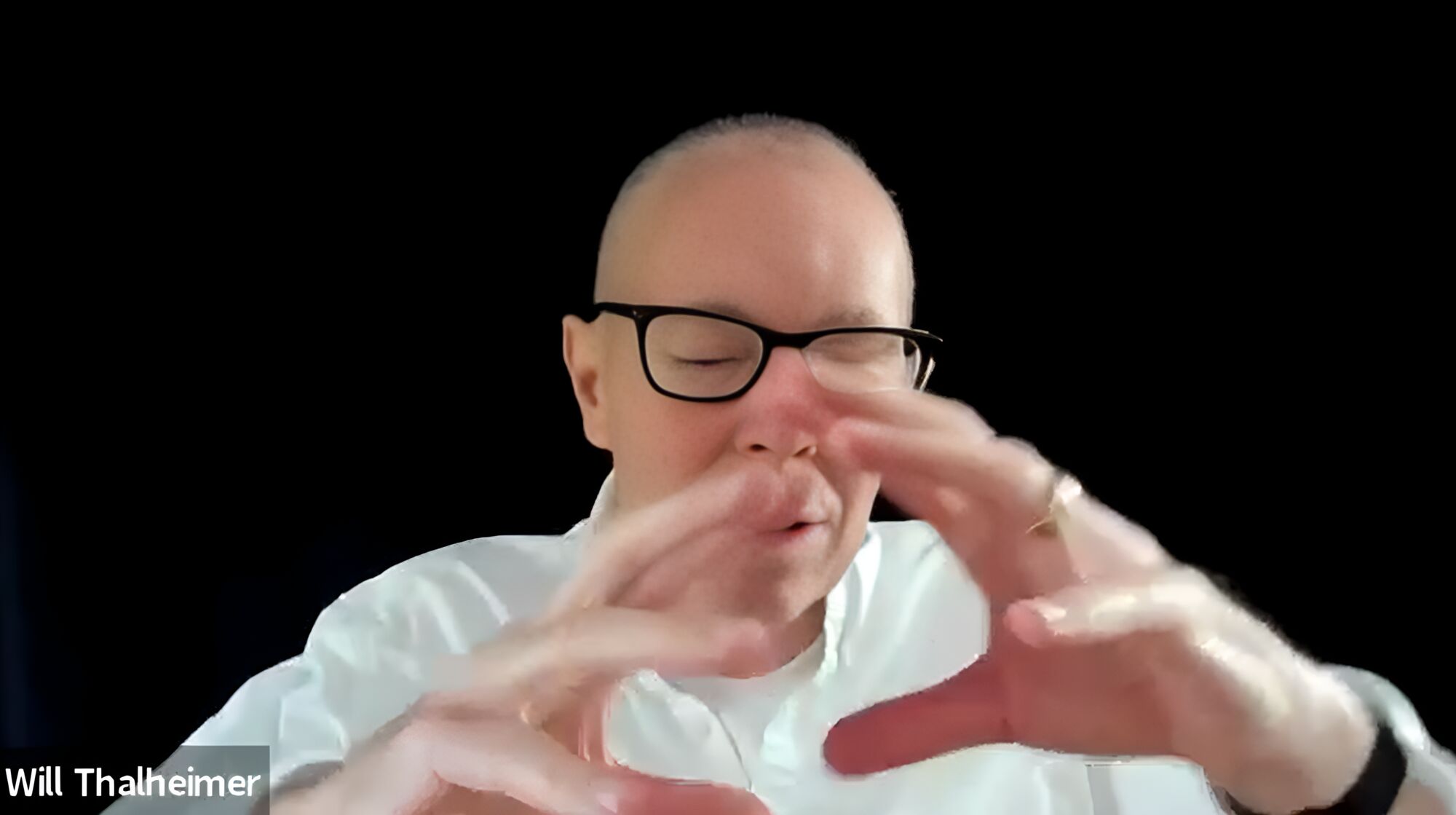
Will Thalheimer explains LTEM

In 2014, Will, along with fellow L&D gurus Michael Allen, Julie Dirksen, and Clark Quinn, created the Serious eLearning Manifesto – a list of principles for effective eLearning. A decade later, it’s been a little quiet around it. Are there plans for a launch party for that too? Will hints that there may be: "There’s been some talk about it. I’ll get back to you on that – I think it’s something we should do."
A Rebel with a Cause?
Given Will’s strong network and reputation, I asked why he hasn’t settled into a more traditional corporate role. Is it because he’s become a bit of a rebel? “I do believe in speaking truth to power," he admits, "but I’ve worked in corporate settings before, and I’m not opposed to it in the future. We’ll see. I think things are really coming together with what I’m doing right now."
I don’t feel angry so much, but maybe dismayed and sometimes frustrated
Known for his critical stance on common L&D myths, I ask him if he isn’t just plain angry sometimes. “I don’t feel angry so much, but maybe dismayed and sometimes frustrated,” he says. “At the very least, we need to ensure we’re not doing harm. And as L&D professionals, we should aim to reach our full potential. That’s what I try to help with every day.”
Will Thalheimer is married and lives and works in Somerville, Massachusetts, United States.

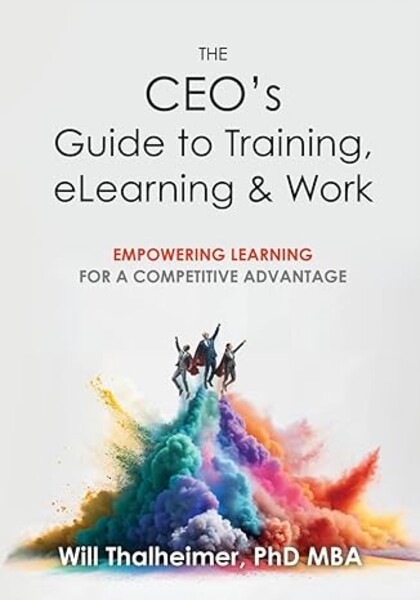
Articles from the CEO Book — https://bit.ly/CEO-Book-Chapters
LTEM Report and Model — https://www.worklearning.com/ltem/
Launch party LTEM 31st of October 2024 —https://bit.ly/newltem
Research-to-practice reports — https://www.worklearning.com/catalog
The LTEM Boot Camp — https://bit.ly/LTEM_Boot_Camp
Book: Performance-Focused Learner Surveys — https://amzn.to/3x62Zxt
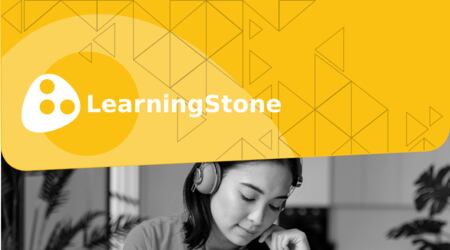
El 25 de septiembre lo invitamos a nuestro Webinar gratuito de 45 minutos: brinde a sus clientes y alumnos el aprendizaje combinado que se merecen!
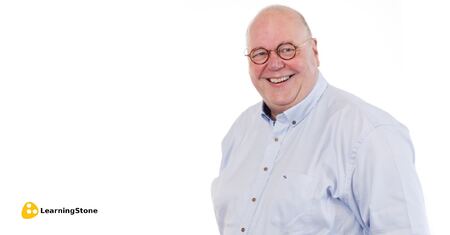
Who am I? What do I want? What are my skills? These three questions (in that particular order!) are at the heart of BCoach's approach. Hans Bouritius co-founded this training program for coaches with…
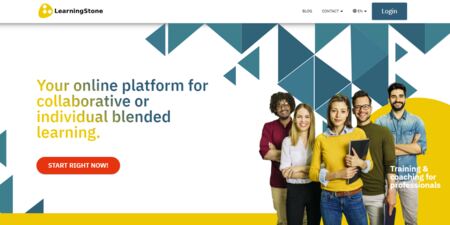
We’re happy to announce that LearningStone has a new home page! We had already used petrol before (that’s that wonderful green-blue color) with our beloved LearningStone yellow. Now that color has…